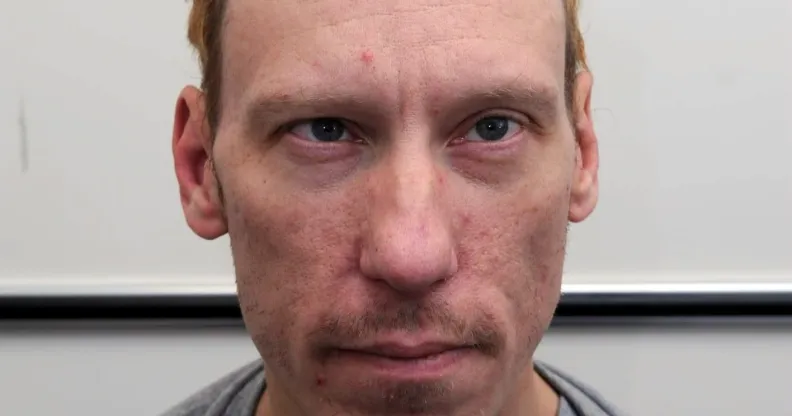Killer chemsex drug GHB – weaponised by rapists and serial killers alike – should be reclassified, drug experts say

Stephen Port killed four young gay men between June 2014 and September 2015.(Metropolitan Police)
The killer chemsex drug GHB should be reclassified as a Class B drug, according to a new report released by an expert committee.
GHB is notoriously easy to overdose on and can be lethal when the wrong amount is taken. The drug is often used during chemsex parties, where participants use drugs to enhance their sexual encounters, and is commonly used within the LGBT+ community.
A new report from the Advisory Council on the Misuse of Drugs (ACMD) has recommended that GHB be reclassified as a Class B drug, which would put it in the same category as speed, cannabis, ketamine and ephedrine.
Currently, GHB is a Class C drug, meaning it is in the same category as anabolic steroids and some tranquillisers.
The ACMD was asked to review the classification of GHB following the conviction of Reynhard Sinaga, dubbed Britain’s most prolific rapist, who was convicted of 159 sex offences against 48 men in Manchester.
Many of Sinaga’s victims woke up without any memory of their sexual assault, leading a judge to conjecture that he had drugged them with GHB.
In its report, the ACMD noted that there has been a worrying increase in the number of people dying with GHB in their systems since its last report into the drug in 2003, according to BBC News.
Each of the known victims of Grindr serial killer Stephen Port were also found to have died from a drug overdose featuring high levels of GHB.
LGBT+ people are the ‘predominant’ users of GHB, according to expert committee.
Professor Owen Bowden-Jones, chair of the ACMD, said: “Given the evidence of significant harms across different contexts, the ACMD have today made a broad set of recommendations on monitoring, legislation, preventing and treatment, which should be taken forward as a whole to reduce harms associated with GHBRS (GHB and related substances).”
He continued: “There is significant evidence of stigma experienced by LGBT+ GHBRS users, currently the predominant users of these drugs, and these recommendations seek to avoid further stigmatisation and reduce the barriers to treatment for those who need it.”
The ACMD also recommended in its report that sexual health and drug services should record the use of GHB and that data on the consumption of the drug should be published by the Crime Survey for England and Wales.
When taken in tiny doses, GHB can give people a feeling of euphoria – which is one of the reasons it is commonly used in chemsex – however, it is dangerously easy to overdose on.
In September 2019, 2,700 gay men who take GHB were surveyed by Channel 4 Dispatches, Patrick Strudwick for Buzzfeed News and the Terrence Higgins Trust for the documentary Sex, Drugs and Murder.
Two thirds of those surveyed said they had had serious problems with GHB, such as addiction, overdosing or sexual assault.
More than a quarter of users said they had been sexually assaulted, while one in four said they knew of someone who had died as a result of the drug.
Almost half of GHB users said they had overdosed and passed out from using the drug, while most respondents were unaware that snoring can be unaware that someone is slipping into a lethal coma as a result of an overdose.
The Metropolitan Police has described chemsex as the “crisis of our time” for LGBT+ communities, noting that there have been more than 60 fatal overdoses linked to drugs such as GHB and GBL in London alone, including murder.

